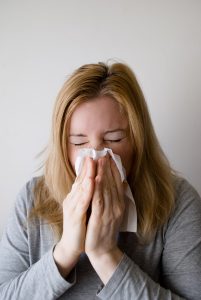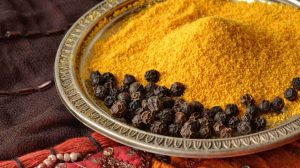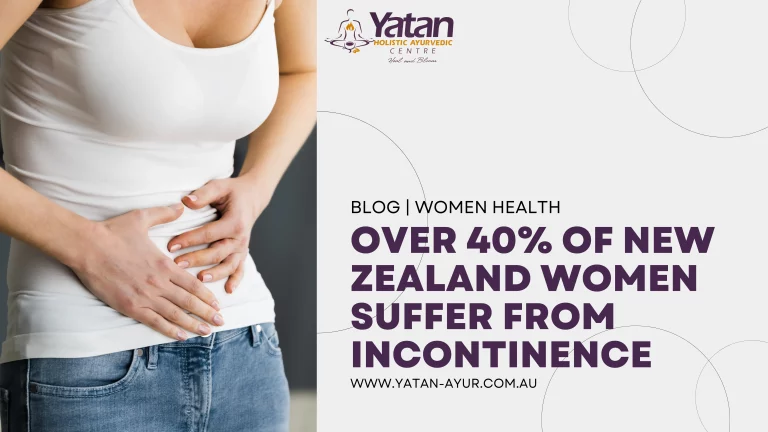Did You Know That Depression Can Be Caused by Lymphatic Congestion?
The Cause of Depression You Knew Nothing About
Depression is the true epidemic of our time. One minute you’re fine, the next you can’t muster the energy to get out of bed. You may also struggle with a lack of motivation, vitality, or appetite. You might deal with isolation and antisocial behaviour, negative thoughts, a sense of being weighed down, and overall fatigue – both physically and mentally.

According to the Australian Institute for Health and Welfare’s Australia’s Health 2020 report, one in five Australians were experiencing a mental health condition in 2017-18. Experts expect that this number has seen a further increase due to the impact of COVID-19.
But instead of waiting for the latest statistics to be disclosed to the public, why don’t we look into the true cause of depression so we can learn to better tackle and treat it? Is it merely a psychological condition or is there evidence of it in your very cells? And what if feeling “weighed down” is an indication that your weight and physique are more important factors than you think?
YATAN Case Study:
Man’s Depression Cured with Cough Medicine
I’d like to present to you the following case which proves how a physical condition, in this case a lymphatic congestion, can be connected to symptoms of depression.

Client: Male, 45, >100kg (overweight).
Symptoms: Client complained about feeling depressed while also exhibiting symptoms of a cold (productive cough and congestion).
Remedial action: Two medicinal decoctions were prepared: one to treat the cold and cough, and another to treat the depression.
Treatment duration: 5-6 months.
Analysis and outcome: After the client’s cold and cough symptoms subsided thanks to the remedy prepared for him, the client claimed the medicine also made him feel better in terms of his depression. Thus, he preferred to re-use the cough medicine given to him initially rather than continue with the depression medicine (which he had already begun consuming, yet did not find as effective). In respect for the client’s experience and wish, further cough medicine was provided to him. The results were excellent and the client fully recovered from his depression.
Baffled by the client’s astonishing progress, I began to look deeper into how a cold and cough could relate to feelings of depression. After listening to an Ayurvedic professor’s lecture on the topic of lymphatic congestion, I finally made the connection:
Overweight and obese people of the Kapha dosha are more likely to get depressed because the excess Kapha (mucus) in their bodies blocks the lymphatic system. This causes congestionin the cells, organs, and glands, which in turn become too sluggish to produce necessary brain hormones. As the system becomes compromised by this congestion, serotonin, dopamine, and other “happy” hormones are difficultly produced, thus the individual becomes sad and depressed.
Conclusively, my client’s mucus-producing cough revealed, according to Ayurveda, an excess in the Kapha (water element)dosha. This is also known as Kapha aggravation. This excess mucus was not only causing my client congestion and a bad cough, but it was also the culprit behind his clogged up lymphatic system and, in extension, his depression.
Causes of Kapha Aggravation-Related Depression
As depression is, in my experience, frequently linked to lymphatic congestion, the main cause of depression is exactly that – an excess in mucus known as Kapha aggravation.

Kapha is required in optimal amounts for the lubrication of the entire body, cells, and organs. But when it gets out of whack, you may end up dealing with an overproduction of mucus, congested nasal passages, excess fat and bloat, oedema, lethargy, and a host of other symptoms.
But what actually causes a Kapha aggravation in the first place? The most common culprits are:
- Pregnancy during which mucus production is at its peak (as it nourishes the foetus and womb).
- Menopause or andropause during which Vata (air) levels are also affected.
- Obesity, which is intricately linked to congestion and mucus production, even asthma.
- Chronic sinusitis, which is mostly due to a hyperactive immune system that overproduces mucus.
- Hormonal disorders, like hypothyroidism, which also wreak havoc on the dosha ratios within the body.
- Chronic anaemia or other deficiencies and causes for malabsorption.
And as there is a variety of causes of Kapha aggravation-related depression, so are there various Ayurvedic treatment plans available.
Ayurveda’s Treatment and Management Plan for Depression
Depression cannot be fixed with a ‘one-fits-all’ remedy. In Ayurveda, a holistic plan must be prescribed tailored specifically to the client’s dosha. If you choose to visit the YATAN Ayurvedic Centre for such a treatment plan, you can expect the following procedure:

- The Ayurvedic practitioner will initially analyse your symptoms, body constitution, and medical history to identify the root cause of your depression. For those unable to attend a face-to-face consultation, this first consultation can be done by phone/live video.
- A treatment plan will then be given to you. This may includevarious lifestyle changes, dietary recommendations, and even the use of some of our products. You may also be prompted to have a Lymphatic Detox and a medicinal decoction may also be prepared for you.
- One or more follow-up sessions will be required to track your progress, make any necessary tweaks to your existing treatment plan, and re-assess any symptoms that may persist.
Whether your depression is caused by Kapha aggravation or another imbalanced dosha, the same process will apply.
How to Treat Depression Symptoms at Home
In the event that you are unable to visit an Ayurvedic centre or would like to start implementing some remedial self-care on your own, here are our expert suggestions:
- Yoga for Lymphatic Drainage

If you’re overweight and depressed, Yoga can be highly beneficial for your congested lymphatic system. Asanas will enable the lymphatic fluid to move freely throughout the body while also aiding blood circulation and nutrient absorption – it’s a win-win for both tackling congestion AND depression!
Yoga poses we recommend for lymphatic drainage are Hastapadasana (Standing Forward Bend), Paschimottanasana (Seated Forward Bend), Indian Pushups, and Bhastrika Pranayama (yogic breathing). If you don’t know how to do these poses, you can consult the Yatan Yoga Book for beginner-friendly instructions.
- Kapha-Balancing Products

To cleanse your system of excess mucus and bring your Kapha levels back to their optimal ratio, you can use a Neti Pot to flush out and cleanse your nasal cavity. Our very own YATAN Neti Pot Kit also includes rock salt to createyour saline rinse and nasal drops to seal the mucus membrane after cleansing.
Another option is to massage your entire body using ourMahanarayan Oil. This particular oil will boost blood circulation and enhance your vitality — which is much like a workout itself! Vitality is also key to a having adosha-balancedsystem.
- Pitta-Increasing Herbs and Spices
The solution to decreasing excess Kapha (water) is increasing Pitta (fire) and ultimately stabilising all the three doshas. There are various Ayurvedic herbs and spices that can do this for you, such as:

- Trikatu
- Ginger
- Turmeric
- Black Pepper
- Lavender
- Peppermint
While you can start adding the above herbs and spices to your foods or drinking them as teas, an Ayurvedic practitioner must always be consulted for the recommended dosages and potencies when it comes to herbal medicine.
- Dosha-Specific Diet
When experiencing depression along with lymphatic congestion, your diet is pivotal. To prevent further Kapha aggravation and symptoms of depression, sluggishness, and congestion, you will have to cut off all dairy, fat, sugars, and red meat. Substitute with healthy foods like fruits and vegetables while adding spices to most if not all your meals.

Oftentimes, your Kapha aggravation may be accompanied by aVata depletion, in which case you should add hot milk and warm spicy foods to your diet. This kind of depression will also affect your bones and joints, so keeping the body warm is highly advised.
A Pitta imbalance can also be linked to mental health disorders, and will affect predominantly the digestive tract. When in excess, Pitta energy can make you irate, angry, impatient, anxious or stressed — avoiding spices while incorporating plenty of liquids and foods with a cooling affect (cucumber, watermelon, zucchini, milk, etc.) will do the trick here. When Pitta is depleted, on the other hand, you can feel sluggish, sensitive to cold, unmotivated, and depressed — the same symptoms indicating a Kapha aggravation. In this case, your diet should consist of foods that will increase your Pitta levels, such as ghee and spicy foods.
Conclusion
Thanks to my long experience and Ayurvedic practice, I have seen a notable connection between depression and lymphatic congestion. This is why overweight and obese people are more prone to getting depressed and losing their motivation and vitality in life. People with hormonal imbalances, menopause/andropause, or mineral deficiencies are also highly prone to developing a congested lymphatic system.
But depression can come in all shapes and sizes, even doshas, which is why seeking an Ayurvedic consultation is key to pinpointing the root cause and finding a solution that actually works for you. At our Yatan Holistic Ayurvedic Centre in Sydney we offer thorough analysis of your symptoms and various treatment plans according to each individual dosha And you never know…maybe a single cough medicine can do the trick!
Are you depressed and overweight or obese? Contact us today for a phone consultation or book an appointment online.
Disclaimer: This article is not intended to substitute medical advice. All information and resources referenced, including medicinal preparations, fitness, dietary and lifestyle recommendations, are based on the opinion of the author. Please consult a medical practitioner if you require advice or are experiencing any worrisome symptoms.

*Discover holistic healing with a complimentary phone or video consultation from our expert Ayurvedic practitioner. Start your path to better health today!*





















